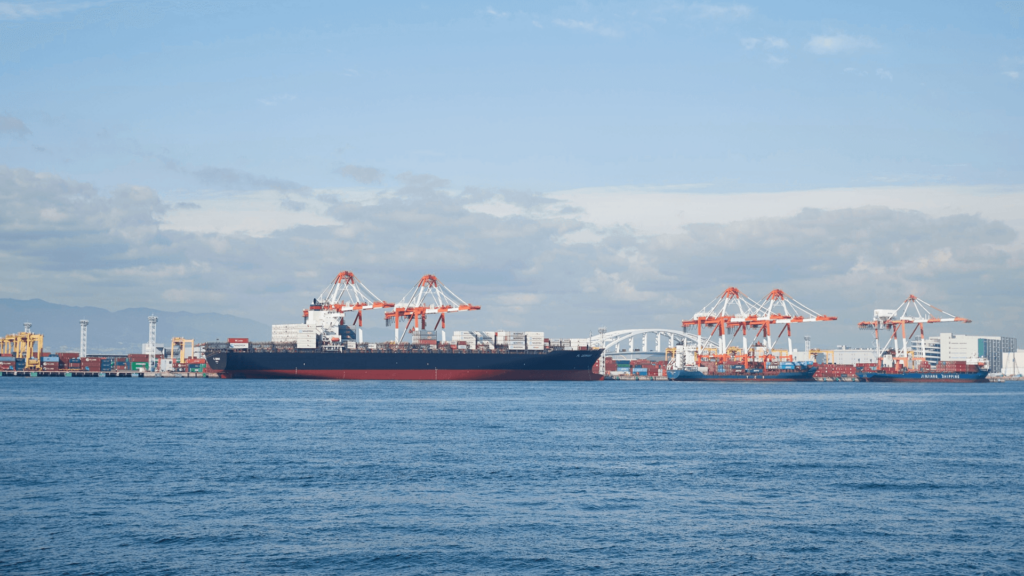
Port-call optimisation. The first step towards a smart and sustainable digital eco-system for maritime transport?
BACKGROUND
The 2nd Florence Maritime Forum, jointly hosted by the Florence School of Regulation’s Transport Area and the European Commission’s DG MOVE, will take the form of a roundtable discussion on 10 October 2019, organised back to back with the Digital Transport Days, taking place in Helsinki.
The maritime transport industry faces strong competitive pressure from other modes of transport, but can and should – ‘tap’ on the potential of digitalisation. In order to remain an attractive and competitive transport mode in an increasingly digital economy, the maritime eco-system has to accelerate efforts in integrating a new digital approach, with a view to facilitating the efficiency, reliability and predictability of operations. Addressing this challenge requires as a basis data exchanges and sharing between all parties making up the maritime eco-system, including hinterland and maritime operators.
Digitalisation is not a goal per se but rather a means to improve operations (including safety of operations), to increase capacity of the maritime industry and to improve links to the hinterland. With 75% of the EU trade being transported on the seas, attractive and competitive maritime services are critical. But it equally concerns the well-functioning of our ports as major gateways connecting the EU market to its international partners. Maritime transport is in essence only one element of a much diverse multimodal transport chain. Its single performance is critical but it cannot suffice if its integration in the overall transport network is not well achieved.
The round-table discussions will hence assess the opportunities and challenges that digitalisation brings to the maritime sector, with focus on, possibly, the most crucial aspect in the logistic chain: the port call.
Optimising port calls means better information to operators on when berth would be available, in order to allow them to adjust their routing, their speed to ensure the most efficient operations and just-in-time arrival. This, in turn, will also have positive effects on the vessels’ fuel consumption, and the related emissions. On the other side, optimising port calls should also allow sufficient information flowing to the port authorities and operators, so that they can best adjust to the expected levels of traffic and cargo.
The issue: port-call optimisation
The concept of port-call optimisation is based on the idea that the efficiency of logistics could significantly increase if the time-schedule of the various activities required for port calls and cargo handling and distribution were set in advance, predictable and fully relied upon, available to all parties involved, and dynamically adjusted in case of unforeseen circumstances.
Whereas elements of this concept are already present here and there, there are no examples of fully-fledged implementation. This might be surprising, considering that the main actors of the logistic chain – shippers, maritime operators and port service providers – share an interest in reducing idle times, maximising turn-around and increasing reliability of schedules. In addition, greater logistic efficiency and voyage optimisation would translate in a reduced carbon footprint: a common challenge to all parties involved.
Therefore, the question is why the full potential of port-call optimisation remains unexploited, considering that the technological means for tracking and tracing vessels and cargo are already available.
Most of the ports in the EU and worldwide operate on a “first come, first served” principle, meaning that ships incur significant additional expense in fuel costs, because the ships might have sailed faster than necessary, or lost cargo carrying time due to the delays in unloading. Some of the world’s major ports have therefore adopted more sophisticated variants of slot management requiring advanced data exchange. In the inland waterways sector, too, there are examples of cooperation of several ports in certain geographical regions, in order to coordinate ports call planning hence improved planning of port operations, including customs activities*.
Using smart information sharing in a maritime eco-system may achieve efficiency gains for vessels, ports, terminals and other actors in the logistic chains; improve turnaround time for vessels, and for authorities needing to ensure safety, security or environmental standards both reducing costs without reducing targets. Data could also be used to improve efficiency in the rest of the transport and logistic chain through better planning of operations, avoiding congestions, etc. However, a smart maritime eco-system can only be achieved through the coordinated efforts of all involved players in deploying innovative technologies, disruptive business models and strategic partnerships.
Participants in this round-table discussion are invited to address some of the basic issues in relation to port-call optimisation and provide their views on the following questions:
(1) Is the concept of port-call optimisation appealing from the point of view of your business? Which aspects are more attractive and which are less desirable and possibly worrying? How can automation or autonomous vessels play a role?
(2) Are there any obstacles to the implementation of the concept? Are these obstacles of a practical, commercial, technological, legal, administrative or other nature?
(3) Are there any actions that could be put in place to facilitate the implementation of the concept, in turn creating trust in any such an eco-system approach? In particular, is standardisation prerequisite problem or a solution? How would a uniform method of measurement to verify and compare reductions of environmental impact work?
*For instance, the The RheinPorts Information System (RPIS) has been developed in the context of the EU (CEF) funded project “Upper Rhine Traffic Management System” conducted by RheinPorts Basel-Mulhouse-Weil together with Port Autonome de Strasbourg, Rheinhäfen Karlsruhe and the other Upper Rhine Ports.
Participation in the event is upon invitation only.

The 4th Florence Rail Regulation Conference aims to discuss advancements for accelerating the growth of the railways in the EU.…

The 3rd Florence Aviation Regulation Conference aims to discuss current and future economic and regulatory policies relating to European air…

The 1st Florence Maritime Regulation Conference aims to discuss regulatory advancements that accelerate the competitiveness and sustainable development of shipping,…
To meet, discuss and learn in the channel that suits you best.